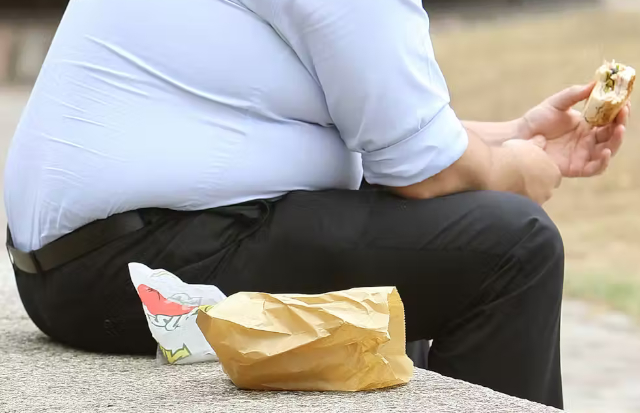If you are female, over 50 and feel isolated, you may be among those most at risk of developing a food addiction. And you’re most at risk of developing a chronic craving for highly- or ultra-processed foods!
 Almost 1 in 4 (24 percent) said that at least once a week they had such a strong urge
Almost 1 in 4 (24 percent) said that at least once a week they had such a strong urge
to eat a highly processed food that they couldn’t think of anything else.
Not unsuspected, but a shocker, nonetheless: common stressors may trigger food dependencies or chronic cravings. And these maladaptations to daily life in the 21st century have also been proven to occur much more commonly in some demographic groups than others.
In a nutshell…
Women between the ages of 50 and 80, who report feeling isolated, see themselves as overweight, or complain that they are in poor physical condition are apparently the easiest targets for food addiction. Overall, in a recent survey, 13 percent of those in the 50-80 age bracket displayed symptoms of addiction to what we commonly call junk food.
University of Michigan researchers were initially surprised the number was so high.
“The word ‘addiction’ may seem strong when it comes to food, but research has shown that our brains respond as strongly to highly processed foods – especially those highest in sugar, simple starches, and fat – as they do to tobacco, alcohol and other addictive substances,” says Dr. Ashley Gearhardt.
What they did
The poll team used a set of 13 questions to measure whether, and how often, older adults experienced the core indicators of addiction in their relationship with highly processed foods such as sweets, salty snacks, sugary drinks and fast food. These addiction indicators include intense cravings, an inability to cut down on intake, and signs of withdrawal.
What they found
Of the 13 percent who reported concerning symptoms in answer to the survey:
- Almost 1 in 4 (24 percent) said that at least once a week they had such a strong urge to eat a highly processed food that they couldn’t think of anything else.
- And 19 percent said that at least 2 to 3 times a week they had tried and failed to cut down on, or stop eating, these kinds of foods.
- Twelve percent said that their eating behavior caused them a lot of distress 2 to 3 times a week or more.
The takeaway
“Just as with smoking or drinking, we need to identify and reach out to those who have entered unhealthy patterns of use and support them in developing a healthier relationship with food,” Gearhardt insists.
“Clinicians need a better understanding of how food addiction and problematic eating intertwines with their patients’ physical and mental health, including chronic conditions such as diabetes, heart disease and certain types of cancer,” says poll director Dr. Jeffrey Kullgren. “We need to understand that cravings and behaviors around food are rooted in brain chemistry and heredity, and that some people may need additional help just as they would to quit smoking or drinking.”
My take
Sounds as though researchers and clinicians are starting to realize that addiction – whether to alcohol, tobacco or drugs, or to junk food – is a complex issue that is going to need considerable inter-disciplinary cooperation between various health specialties to conquer.
It’s also nice to see that someone took previous studies about food addiction to heart, and carried on the work of investigators like those at Connecticut College, “who found that eating OREOs activated more neurons in the brain’s ‘pleasure center’ than exposure to drugs of abuse.”
And I was further pleased to see Gearhardt suggest that the 13 questions his group asked survey participants should be included in routine questionnaires that physicians use with their patients during annual health assessments. Early detection and treatment – or at least vigilance might help reduce he development and persistence of food addictions, especially among those most prone to them.
So get back out there, researchers, and keep working the case!
~ Maggie J.

